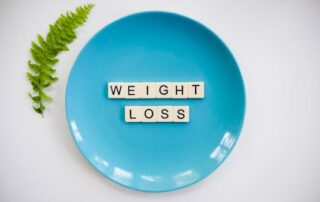
More Weight Control, Nutrition & Exercise Articles
Maintaining Your Weight Loss After Ozempic: Tips for Success

When considering how to not gain weight after stopping Ozempic, it’s essential to focus on sustainable lifestyle changes. Transitioning off this medication requires a strategic approach to maintain the weight loss achieved during treatment. Here we share some practical tips to help you succeed in your weight management journey.
How to Not Gain Weight After Stopping Ozempic
First, it’s important to understand why weight gain might occur after stopping the use of Ozempic. Ozempic is a medication that helps manage blood sugar levels in people with type 2 diabetes, and it often aids in weight loss as an added benefit. When you discontinue its use, the support in appetite regulation that Ozempic offered may decrease, making it crucial to adopt healthy habits that promote weight maintenance.
1. Embrace a Balanced Diet
A balanced diet is the cornerstone of maintaining your weight. Focus on consuming a variety of nutrient-dense foods, including lean proteins, whole grains, and plenty of fruits and vegetables. Limiting processed foods and sugary beverages can also play a significant role in preventing weight gain.
Mindful eating practices, such as paying attention to hunger cues and eating slowly, can help you maintain your weight by preventing overeating.
2. Stay Active
Regular physical activity is essential for weight maintenance. Aim for at least 150 minutes of moderate-intensity aerobic exercise per week, as recommended by health guidelines. Incorporating both cardio and strength-training exercises can enhance metabolism and support muscle retention.
According to the Centers for Disease Control and Prevention, staying active not only helps in managing weight but also reduces the risk of several chronic diseases.
3. Monitor Your Progress
Tracking your progress can provide valuable insights into your weight maintenance journey. Consider regularly weighing yourself or measuring your waist to monitor any changes. Keep a food and activity diary to identify patterns and make necessary adjustments to your plan.
4. Manage Stress Effectively
Stress can negatively impact your weight by influencing your eating patterns and metabolism. Practice stress-reduction techniques such as mindfulness, yoga, or deep breathing exercises to maintain emotional well-being and prevent weight gain.
5. Prioritize Sleep
Adequate sleep is crucial for overall health and can significantly affect weight management. Aim for 7-9 hours of quality sleep per night to help regulate appetite-related hormones like ghrelin and leptin, which control hunger and satiety.
Consulting with Healthcare Providers
It’s essential to discuss your weight maintenance strategy with healthcare providers. They can offer personalized advice tailored to your unique health needs and can adjust treatment plans as necessary. If you’re concerned about how to not gain weight after stopping Ozempic, reaching out to professionals is a proactive step.
For more safe and effective approaches to weight control, explore this detailed article on weight management strategies.
Consider Long-Term Strategies
Establishing long-term habits that can sustain your weight without relying on medication is vital. This might include joining support groups, seeking guidance from a registered dietitian, or participating in community fitness programs. These efforts can provide encouragement and accountability.
By addressing diet, exercise, stress, sleep, and long-term strategies, you can successfully manage your weight after stopping Ozempic. Implementing these practices ensures you stay on track with your health goals.
Recap of the Key Points
- Maintain a balanced diet to support your weight goals.
- Engage in regular physical activity to enhance metabolism.
- Monitor progress to stay informed about your weight trends.
- Manage stress and prioritize sleep for optimal health.
FAQs
Can I still lose weight after stopping Ozempic?
Yes, it’s possible to continue losing weight after stopping Ozempic by maintaining healthy lifestyle changes, including a balanced diet and regular exercise.
How long does it take for Ozempic to leave your system?
Ozempic has a half-life of about one week, so it can take several weeks to be completely eliminated from your body, depending on various personal factors.
What are common side effects after discontinuing Ozempic?
Some individuals may experience changes in appetite, digestion, or glucose control after stopping Ozempic. It’s important to consult a healthcare provider if you notice unusual symptoms.
Do I need a special diet after stopping Ozempic?
No special diet is required, but following a nutritious and balanced diet can help maintain the weight loss achieved while on the medication.
How can I prevent weight gain after Ozempic?
Focus on consistent healthy habits, including a balanced diet, regular physical activity, stress management, and adequate sleep to avoid regaining weight after discontinuing the medication.
Other Articles You May Find of Interest...
- Can Naturopathy Help with Weight Loss?
- Muscle Recovery Time by Age: Understanding the Impact of Aging on Recovery
- How Protein Bars Can Support Your Active Lifestyle
- Is Popcorn a Fiber Powerhouse for Your Health?
- Are Cherries Acidic and How They Affect Your Health?
- Effective Tips for Maximizing Growth Potential at 14
- Unlock the Health Benefits of Flax Meal for Your Wellness Journey














